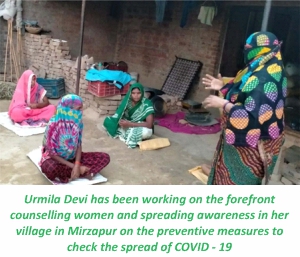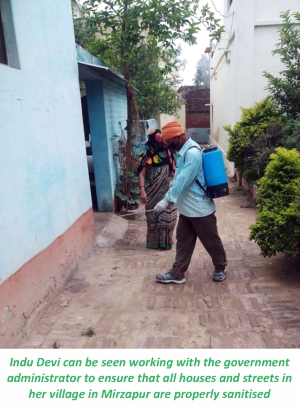Women’s Contribution during COVID
In
the weeks since the coronavirus outbreak was declared a global publi c health
emergency, it has affected over 200 countries and cost over 400,000 lives.
Female leaders have exhibited clarity, foresight and compassion
that not many leaders have managed while dealing with the health emergency.
The pandemic has brought us stories of Kerala’s Health Minister, K K
Shailaja and New Zealand’s Prime Minister Jacinda Ardern who have been
fairly successful in checking the spread of the virus. Finnish PM Sanna
Marin, the world’s youngest leader at 35, imposed an early lockdown
showcasing her grit. The seasoned German politician Angela Merkel joined
hands with the French President to propose big funding for EU nations
struggling to tackle the pandemic, thus showing that good leadership knows
no borders. Taiwan’s President Tsai Ing-wen managed to contain the spread of
the virus with a series of restrictions without actually imposing a
lockdown.
c health
emergency, it has affected over 200 countries and cost over 400,000 lives.
Female leaders have exhibited clarity, foresight and compassion
that not many leaders have managed while dealing with the health emergency.
The pandemic has brought us stories of Kerala’s Health Minister, K K
Shailaja and New Zealand’s Prime Minister Jacinda Ardern who have been
fairly successful in checking the spread of the virus. Finnish PM Sanna
Marin, the world’s youngest leader at 35, imposed an early lockdown
showcasing her grit. The seasoned German politician Angela Merkel joined
hands with the French President to propose big funding for EU nations
struggling to tackle the pandemic, thus showing that good leadership knows
no borders. Taiwan’s President Tsai Ing-wen managed to contain the spread of
the virus with a series of restrictions without actually imposing a
lockdown.
Women’s contribution in rural India has been
inspiring as well. Take the case of Urmila Devi from Bedauli village of
Mirzapur district in Uttar Pradesh. She actively took part in spreading
awareness about the methods of preventing the contraction of the virus, the
importance of practicing social distancing, wearing a mask and keeping th e neighbourhood clean. Apart from that, she has been helping the
administration in distribution of masks, sanitisers and soaps including dry
rations in an attempt to reach the needy and the underserved. Her efforts
drew accolades from the ‘Gram Pradhan’ of the village. Similarly, Indu Devi,
from village Bedaulikala of the same district has been instrumental in
conducting workshops and trainings to teach women in her village to make
masks at home. Other than this, she is working day and night with the
administration to make sure that all houses in her village are sprayed and
sanitised.
e neighbourhood clean. Apart from that, she has been helping the
administration in distribution of masks, sanitisers and soaps including dry
rations in an attempt to reach the needy and the underserved. Her efforts
drew accolades from the ‘Gram Pradhan’ of the village. Similarly, Indu Devi,
from village Bedaulikala of the same district has been instrumental in
conducting workshops and trainings to teach women in her village to make
masks at home. Other than this, she is working day and night with the
administration to make sure that all houses in her village are sprayed and
sanitised.
Women self help groups (SHGs) too have been in the forefront of the battle against COVID-19. In Sirsi village, Lalitpur in Uttar Pradesh, a group of 12 TARA Akshar+ neo-literates formed a SHG named Sri Ganesh and have been employed by the National Rural Livelihood Mission (NRLM) to stitch masks. NRLM placed an order to stitch 1000 masks with this SHG.
While these stories from the global and local arena continue to inspire us, at a systemic level we need newer forms of administrative and legal safeguards to protect women’s rights by collaboratively designing gender-responsive policies. Transformed focus on advancing existing skills and providing new types of training would shield women from redundancy in such challenging times. ■
Tejashwani
tejashwani@devalt.org